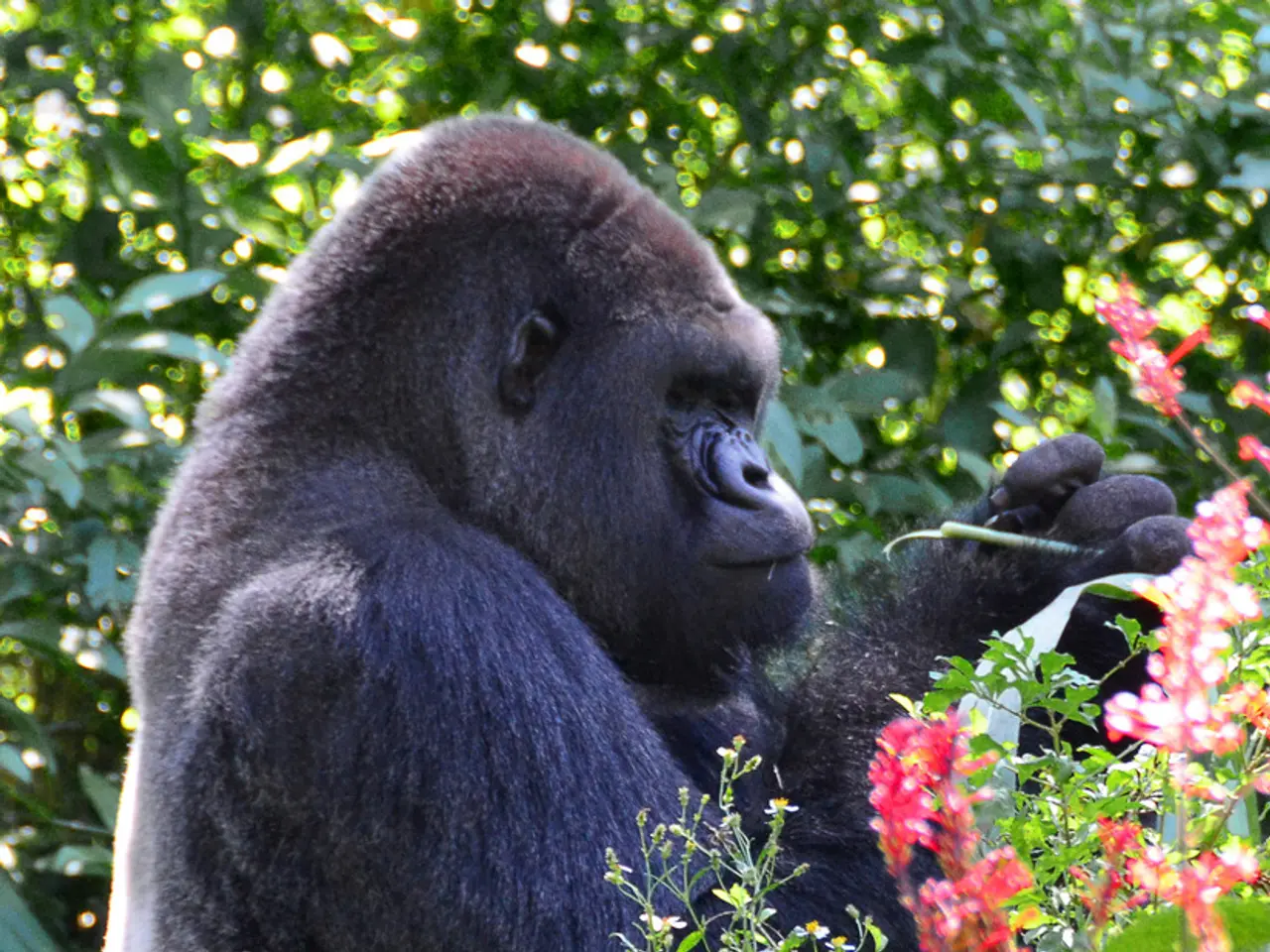Oil and Gas Development Threatens Gorilla Sanctuaries Across Half of the Democratic Republic of Congo
The Democratic Republic of Congo (DRC) is turning to oil and gas agreements for quicker income as promised funding from international efforts like the Central African Forest Initiative (CAFI) has fallen short. However, this move towards oil exploration, particularly in the Cuvette Centrale peatland complex, poses significant risks to the environment, biodiversity, and the livelihoods of local communities.
The Cuvette Centrale, the world’s largest tropical peatland complex, stores an estimated 30 gigatons of carbon, a critical global carbon sink. Oil exploration and infrastructure development in this area risk releasing stored carbon dioxide, potentially accelerating climate change rather than mitigating it.
Oil exploration blocks proposed by the DRC government overlap nearly the entire Cuvette Centrale and extend over millions of hectares of primary rainforests and biodiversity hotspots. These ecosystems, including habitats for endangered species such as forest elephants, mountain gorillas, and bonobos, face the threat of fragmentation, disruption, and undermining of conservation efforts.
Conservationists warn that exploration activities themselves, even before drilling, could cause large-scale forest degradation and carbon emissions. This could turn the Congo Basin from a carbon sink into a carbon source with serious consequences for the global climate.
The DRC government’s push for oil development is part of a broader economic strategy, but critics highlight that this approach contradicts global climate goals and may jeopardize long-term environmental and social sustainability.
The potential environmental impacts are not limited to the Cuvette Centrale. The Democratic Republic of Congo is exploring 124 million hectares for oil and gas, affecting 64% of its intact forests. The Kivu-Kinshasa Green Corridor, a premier conservation project, crosses over into potential oil blocks, undermining the DRC's biodiversity pledges.
Oil drilling could disrupt traditional livelihoods, degrade land, and contaminate water supplies in the DRC. A total of 39 million people, including Indigenous and forest-based groups, reside in the oil blocks, relying on rivers and woodlands for water, food, and traditional rituals.
Sustainable development initiatives like carbon credit schemes or ecotourism could provide an alternative to oil extraction for the DRC, protecting forests while making money. International partners must meet funding commitments, such as the CAFI accord, for conservation to be financially feasible. Stopping the 2025 oil tender is considered an essential first step to protect the DRC's forests and wildlife.
References:
- Mongabay. (2021, March 10). DRC oil blocks threaten world's largest tropical peatland complex. Retrieved from https://news.mongabay.com/2021/03/drc-oil-blocks-threaten-worlds-largest-tropical-peatland-complex/
- Reuters. (2021, March 10). DRC oil blocks threaten world's largest tropical peatland complex. Retrieved from https://www.reuters.com/business/energy/drc-oil-blocks-threaten-worlds-largest-tropical-peatland-complex-2021-03-10/
- The Guardian. (2021, March 10). DRC oil blocks threaten world's largest tropical peatland complex. Retrieved from https://www.theguardian.com/environment/2021/mar/10/drc-oil-blocks-threaten-worlds-largest-tropical-peatland-complex
- WWF. (2021). The Congo Basin. Retrieved from https://www.wwf.org/what-we-do/where-we-work/africa/congo-basin/
- The DRC's planned oil and gas agreements could jeopardize the Cuvette Centrale peatland complex, a critical global carbon sink that stores an estimated 30 gigatons of carbon.
- Oil exploration blocks proposed by the DRC government threaten to release stored carbon dioxide, potentially exacerbating climate change instead of mitigating it.
- The proposed oil blocks overlap nearly the entire Cuvette Centrale and extend over millions of hectares of primary rainforests and biodiversity hotspots.
- These ecosystems, which include habitats for endangered species such as forest elephants, mountain gorillas, and bonobos, face the risk of fragmentation, disruption, and undermining of conservation efforts.
- Oil drilling could cause large-scale forest degradation and carbon emissions, turning the Congo Basin from a carbon sink into a carbon source with significant consequences for the global climate.
- critics argue that the DRC government's push for oil development contradicts global climate goals and may jeopardize long-term environmental and social sustainability.
- Oil exploration affects 124 million hectares in the DRC, impacting 64% of its intact forests and potentially undermining the DRC's biodiversity pledges.
- The Kivu-Kinshasa Green Corridor, a premier conservation project, is at risk due to the proposed oil blocks.
- Oil drilling could disrupt traditional livelihoods, degrade land, and contaminate water supplies in the DRC, affecting 39 million people, including Indigenous and forest-based groups.
- Sustainable development initiatives like carbon credit schemes or ecotourism could provide an alternative to oil extraction for the DRC, protecting forests while generating income.
- International partners must meet funding commitments, such as the CAFI accord, for conservation efforts to be financially feasible.
- The physical and intellectual growth of individuals can be fostered through education and self-development opportunities, aiding in career development and personal growth.
- The sports industry, including sports betting and basketball, can serve as a profitable platform for learning valuable skills such as teamwork, discipline, and strategic thinking.
- In the realm of fashion and beauty, sustainable practices, such as choosing eco-friendly products and reducing waste, can contribute to environmental sustainability while promoting a desirable lifestyle and business opportunities.




